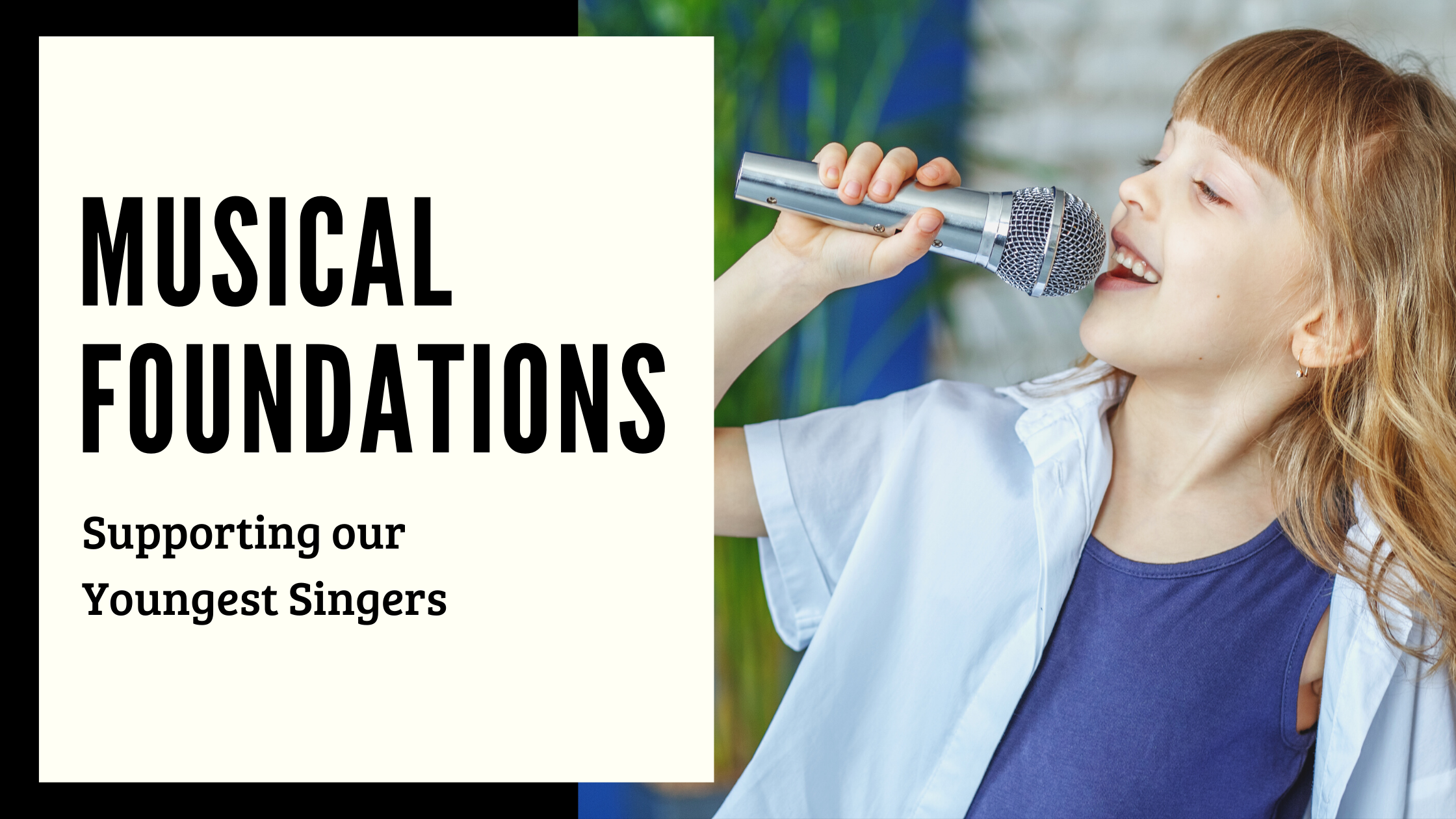If you’re like most parents, you only want what is best for your child, including feeling driven to do whatever you can to help them reach their dreams. With singing, however, it’s not uncommon for eager-to-help parents to make less than optimal decisions if they forget to weigh expert advice. If you have a little one who is driven to sing, we’re so glad you’re reading this post– We want to help you help your child!
First, the pitfalls: Remember, your child is still growing and changing physically every single day. Their voice will continue to grow and change into their adulthood, and eager young singers could fall into the trap of trying to imitate adult sounds, or trying to sustain a song choice that is beyond their reasonable physical capacity (either in range or simply stamina). Besides the risk of vocal injury (a very serious possibility, but thankfully somewhat rare), it’s also possible for child singers to create bad habits (stemming from overcompensating for their small size and underdeveloped voice boxes) that can be ineffective and/or damaging later in life. Add to the mix that young children often have musical deficits in ear-training, speed or accuracy problems with learning music, and/or a weak sense of rhythm, and it becomes clear that spending time and energy on rudimentary musical skills will be a better investment for most young singers, better enabling them to grow into the singers they dream of being when the time is right later in life. After all, the skills that set singers apart later in life are often those related to professionalism and musical literacy. Help your child’s beautiful voice stand out from the crowd by supporting them in growing into a well-rounded musician (not “just another pretty voice” as the heart-breaking expression goes).
Even in children who have a good sense of pitch at the outset, pitch problems can become a problem for those who do not learn a supporting instrument alongside singing. Many young voices have a vocal “break” or “passaggio” which is completely normal and healthy, but can feel and sound artificial to the child, again causing them to overcompensate with possibly harmful techniques, or sometimes, to cheat pitches to keep songs in the comfortable part of their voice. Over time, this can de-sensitize their ear and result in pitch-matching weaknesses. However, by learning an instrument, they will instead train their ear to become accurate and eventually will learn to match their voice to the pitch instead of the other way around.
So, what are your best options to do the right thing for your child’s musical growth?
- Piano Lessons for Singers: Love of singing is very special to us at Cardon Voice, and no less so at our sister studio, Cardon Studios! Whenever we encourage a child to embrace piano alongside singing, we are careful not to discourage young singers. On the contrary, we ask our young pianists (even those who aren’t driven to sing) to sing along with their playing all the time! This is a crucial skill to developing their inner sense of “Audiation”, that is, “the mind’s ear”. While learning how to read sheet music, creating an accurate rhythmic and pitch sense, your child will sing along and do imaginative projects that will even help support them if they later become interested in writing their own music, all the while taking care of their little growing voice to avoid overuse or misuse (both of which, again, lead to vocal injury).
- Voice Lessons for Young Singers: While introducing young singers to keyboard skills would be optimal, for little ones who are resistant to the idea of learning to love piano in addition to singing, healthy Voice lessons for young children are possible when handled correctly. This type of singing lesson will save the more advanced concepts and song choices for later, while still introducing key musical concepts using an ear-training method called Solfege. This method is a bit more abstract (vs. being literally laid out in Black and White on the piano keyboard) and thereby somewhat more challenging, but Cardon Voice teachers will utilize a fun sense of exploration to help your little one along. Alongside these concepts, singing basics like posture and relaxed breathing will begin to be explored.
Whether pursuing Piano for Singers or Voice Lessons for Young Singers, a textbook series is required. Please plan on an additional book expense, usually ranging from $15-25, about every 6-12 months of lessons.
In case the need for a keyboard is a concern, very basic models such as this one are a great place to start; a “real” piano isn’t necessary at this stage, particularly if keyboard is intended as a bridge to singing.
To speak with a teacher and learn more about how Online Music Lessons can help your child, book a free intro Piano Lesson with Cardon Studios or a Consultation with Cardon Voice today!

